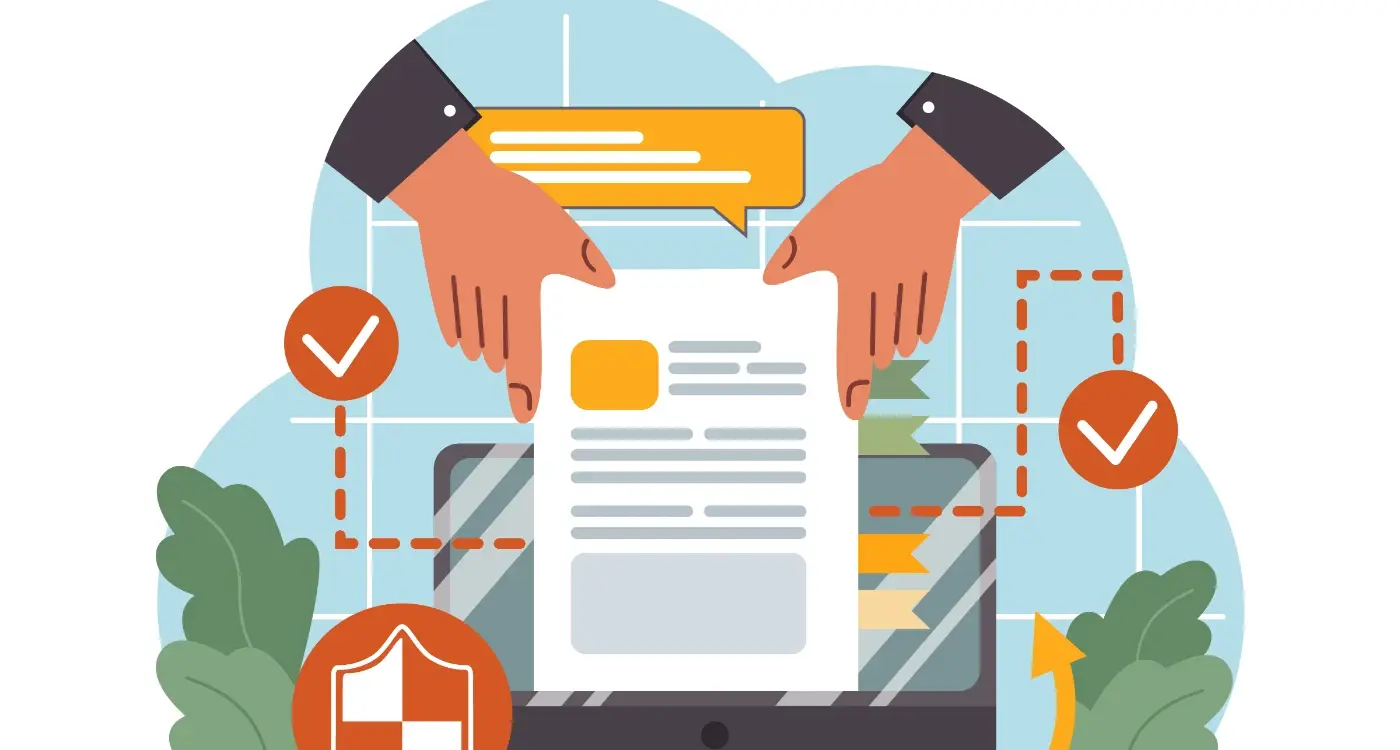What Legal Issues Should You Consider With Remote App Development?
Have you ever stopped to think about what happens when something goes wrong with your mobile app project and your development team is scattered across three different countries? I've been working with remote development teams for years now, and I can tell you that the legal side of things gets complicated fast. Really fast. When you're building an app with developers in Eastern Europe, designers in South America, and project managers in Asia, you're not just dealing with time zones and language barriers—you're navigating a web of different laws, regulations, and legal systems that can make your head spin.
The thing is, most people don't think about the legal stuff until it's too late. They get excited about finding talented developers at great rates, sign a basic contract, and off they go. But here's what I've learned the hard way: when you're working across borders, contract law becomes your best friend or your worst enemy depending on how well you understand it. International agreements aren't just fancy documents—they're your lifeline when disputes arise, intellectual property gets murky, or data protection laws start conflicting with each other.
The most expensive legal mistake you can make is assuming that what works in your country will work everywhere else
This guide will walk you through everything you need to know about the legal landscape of remote app development. We'll cover the basics of international contract law, explore different types of agreements, and help you avoid the costly mistakes that catch most people off guard. Trust me, a little legal knowledge upfront can save you thousands in headaches later.
Understanding Contract Law Basics for Remote App Development
Working with remote development teams means you'll be dealing with contracts more than you might expect. I've seen too many projects go sideways because someone didn't understand what they were signing—and trust me, it's not fun sorting out the mess afterwards.
A contract is simply a legal agreement between you and your development team. It sets out what each party will do, when they'll do it, and what happens if things go wrong. When you're working across borders, these agreements become your safety net.
What Makes a Contract Valid
For any contract to work properly, you need three basic things: an offer (we'll build your app), acceptance (yes, please do), and consideration (payment or exchange of value). Both parties must also have the legal capacity to enter into the agreement—meaning they're old enough and mentally capable of understanding what they're agreeing to.
Types of Contracts You'll See
Most remote app development projects use one of these contract types:
- Fixed-price contracts—you pay a set amount for the entire project
- Time and materials contracts—you pay for hours worked plus expenses
- Milestone-based contracts—payments are tied to specific project deliverables
- Retainer agreements—ongoing monthly payments for continued development work
The key is making sure your contract covers scope, timelines, payment terms, and what happens if disputes arise. Getting this right from the start saves headaches later.
Key International Agreement Types You'll Encounter
When building a mobile app with remote teams, you'll come across several types of international agreements. Each one serves a different purpose and knowing which to use can save you headaches later on.
Service Agreements vs Development Contracts
Service agreements are broad contracts that cover ongoing work—think monthly retainers or long-term partnerships. Development contracts are more specific; they focus on delivering a particular mobile app or feature set. I've found that most clients start with a development contract for their initial app, then move to service agreements for updates and maintenance.
Master service agreements (MSAs) sit somewhere in between. They establish the ground rules for working together, then you can add smaller work orders underneath. This approach works brilliantly when you're planning multiple projects or phases.
Work-for-Hire vs Licensing Agreements
Work-for-hire agreements mean you own everything the developer creates for your mobile app. Licensing agreements mean the developer keeps ownership but gives you permission to use their work. Contract law varies between countries here, so what counts as work-for-hire in one place might not apply elsewhere.
| Agreement Type | Best For | Ownership |
|---|---|---|
| Service Agreement | Ongoing support | Shared/negotiable |
| Development Contract | Specific projects | Usually client |
| Work-for-Hire | Full ownership needed | Client owns all |
| Licensing | Using existing tools | Developer retains |
Always specify which country's laws will govern your international agreements—this prevents confusion if disputes arise later.
Intellectual Property Rights Across Different Countries
I'll be honest—intellectual property law across different countries can be a bit of a minefield when you're working with remote app development teams. Each country has its own rules about who owns what, and these differences can catch you off guard if you're not prepared.
Let's start with the basics. In most countries, the person or company who creates something automatically owns the intellectual property rights to it. But here's where it gets tricky—some countries have different rules about what counts as "work for hire" and when those rights transfer to you as the client.
Copyright Ownership Variations
In the United States, if you hire someone as an employee, you automatically own the work they create. But if you hire a contractor (which most remote developers are), you need a written agreement stating that you own the rights. The UK has similar rules, but they're not identical.
Countries like Germany have much stronger "moral rights" protections for creators—this means developers might retain certain rights to their work even after you've paid for it. France has similar protections that can't be waived, which could affect your project down the line.
Patent Protection Differences
Patent laws vary dramatically between countries. What's patentable in one country might not be in another, and the process for applying can take years. Most mobile apps rely more on copyright and trademark protection anyway, but it's worth understanding these differences exist.
Data Protection and Privacy Laws for Global Teams
Working with remote developers across different countries means juggling various data protection laws—and trust me, they're all different! Each country has its own rules about how personal data should be handled, stored, and transferred. The European Union's GDPR is probably the most well-known, but countries like Canada, Australia, and even individual US states have their own strict requirements that could affect your mobile app project.
Understanding Cross-Border Data Transfers
When your development team spans multiple countries, data inevitably crosses borders. This includes everything from user data in your mobile app to internal project communications. Some countries require specific safeguards or agreements before data can leave their jurisdiction; others prohibit certain types of data transfer altogether.
The biggest mistake I see teams make is assuming their home country's privacy laws apply everywhere—they don't, and the penalties for getting it wrong can be massive
Building Privacy Into Your Development Process
Smart teams build privacy considerations into their international agreements from day one rather than treating them as an afterthought. This means specifying data handling procedures in your contracts, ensuring all team members understand their local obligations, and implementing technical measures that comply with the strictest applicable laws. Remember, when working internationally, you often need to follow the most restrictive rules that apply to your project—not just the most convenient ones.
Employment Law When Working with Remote Developers
Working with remote developers brings up some tricky questions about employment law—and trust me, I've seen plenty of businesses get caught out by this over the years. The main issue you'll face is figuring out whether your remote developer is an employee or a contractor, because the legal obligations are completely different.
Most remote app developers work as independent contractors rather than employees. This means they handle their own taxes, provide their own equipment, and work on multiple projects for different clients. But here's where it gets interesting—some countries have very strict rules about what counts as contracting versus employment.
Key Employment Classification Factors
- Control over how and when work is completed
- Whether they use their own tools and equipment
- If they work exclusively for your company
- How they're paid (salary versus project fees)
- Whether they can delegate work to others
Different countries interpret these factors differently. In some places, if you're too controlling about working hours or methods, the authorities might classify your contractor as an employee—even if that wasn't your intention. This could mean you're suddenly liable for employment benefits, taxes, and other obligations you never planned for.
The safest approach is to use clear contractor agreements that spell out the working relationship and respect the developer's independence in how they complete their work.
Dispute Resolution Methods for International Projects
When your mobile app project goes sideways—and trust me, after years of working with international teams, I can tell you it happens more often than anyone likes to admit—you need a clear path forward. Contract law becomes your best friend when disputes arise, but the methods for solving problems vary dramatically depending on which countries are involved in your international agreements.
The big question isn't whether disputes will happen; it's how you'll handle them when they do. Most experienced developers I know have learned this the hard way.
Main Dispute Resolution Options
You've got several paths to choose from, each with different costs, timeframes, and outcomes:
- Negotiation between parties directly
- Mediation with a neutral third party
- Arbitration through international arbitration bodies
- Court litigation in agreed jurisdiction
- Expert determination for technical disputes
Arbitration tends to be the go-to choice for international mobile app projects because it's faster than courts and the decisions are enforceable across most countries. The key is choosing your dispute resolution method before problems arise—not after.
Always specify which country's laws will govern disputes and where resolution proceedings will take place in your contract. This saves massive headaches later when tensions are already high and nobody wants to compromise.
Making the Right Choice
For smaller disputes under £10,000, mediation often makes the most sense. For bigger issues involving intellectual property theft or major breaches, arbitration gives you more legal teeth whilst still being quicker than traditional courts.
Common Legal Pitfalls and How to Avoid Them
After working with remote development teams for years, I've seen the same mistakes happen over and over again—and they're completely avoidable if you know what to watch out for. The biggest trap I see people fall into is rushing the paperwork stage because they're excited to start building. This always backfires.
Documentation Problems
The most common issue is having unclear contracts that don't specify who owns what code or when payments are due. I've watched projects grind to a halt because nobody bothered to write down the simple stuff. Always get everything in writing, even if it seems obvious at the time.
Another frequent problem is mixing up different countries' laws—what works in the UK might not apply to your developer in Poland or India. Don't assume your local rules cover everyone involved in the project.
Communication Breakdowns
Time zones and language barriers create legal headaches when instructions get misunderstood. The solution? Be ridiculously specific about requirements and deadlines. Use simple language and confirm understanding in writing.
The golden rule I tell all my clients is this: spend an extra week getting the legal bits sorted properly, or spend months sorting out the mess later. Trust me, protecting your app idea is worth it.
Conclusion
After working with remote teams across dozens of countries, I can tell you that getting the legal side right isn't just about ticking boxes—it's about protecting your mobile app project from expensive surprises down the line. The contract law principles we've covered form the backbone of any successful remote development partnership, whilst international agreements help bridge the gaps between different legal systems.
What strikes me most about remote app development is how quickly things can go wrong when you skip the legal groundwork. I've seen brilliant projects derailed by intellectual property disputes that could have been avoided with proper contracts. Data protection laws aren't going anywhere; they're only getting stricter across different jurisdictions, so building compliance into your workflow from day one saves headaches later.
The employment law considerations we discussed might seem tedious now, but they become absolutely critical when tax authorities or labour departments start asking questions. Dispute resolution methods aren't something you want to research when you're already in conflict—having these mechanisms sorted before you start work is like having insurance you hope you'll never need.
Remote app development offers incredible opportunities to work with talented people worldwide, but success depends on getting these legal foundations right from the start. Take the time to set things up properly, and you'll sleep much better at night.
Share this
Subscribe To Our Learning Centre
You May Also Like
These Related Guides

Which Documents Keep Your App IP Safe During Development?

How Do I Protect My App Idea With Legal Agreements?



